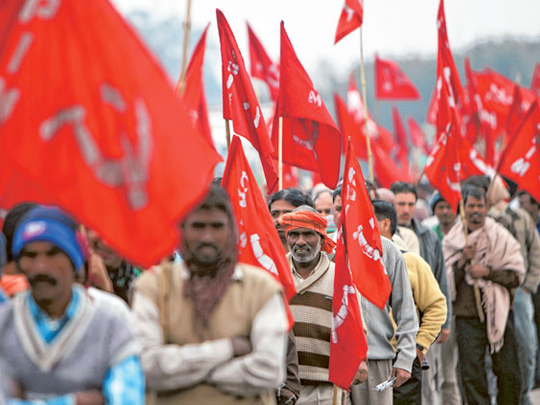
New Delhi: The upcoming central trade unions strike will affect both the residents and non-resident citizens of India.
Ground handling employees working in Cochin International Airport Limited (CIAL), housekeeping workers, other CIAL employees, teachers, employees of telecom company Bharat Sanchar Nigam Limited, the postal department, employees of the insurance, motor vehicle and banking sectors and other employees in the defence sector will also take part in the strike.
This will affect domestic and international flight services as well as remittance transfers from abroad.
The sectors that are going to be affected widely will be coal, power, cement, textiles, oil, aviation, banks, insurance and post office. The transport sector in Haryana, Uttar Pradesh, Rajasthan and Punjab will be completely closed.
“Essential services such as newspaper, milk, hospital, marriage functions, ambulance and fire and rescue services have been exempted from the strike. The strike will not affect hajj pilgrims also,” Centre of Indian Trade Unions (CITU) leader KN Gopinath told Gulf News.
Industry lobby group Associated Chambers of Commerce (Assocham) estimates the loss due to strike will be to the tune of Rs250 billion (Dh13 billion).
Also joining the strike is the civilian workforce of 41 defence ordinance factories, 52 Defence Research and Development Organisation (DRDO) labs, naval dockyards, military engineering services as well as defence workshops and depots.
“The All-India Defence Employees’ Federation and its affiliated unions have already served a strike notice to the government on August 14 and we will join the September 2 national strike,” the federation’s general secretary, C. Srikumar, said in a statement.
The civilian defence employees demand the withdrawal of 49 per cent of foreign direct investment (FDI) in defence production and research, withdrawal of the government decision to privatise defence production, withdrawal of the National Pension Scheme rolled out since January 1, 2004, as well as the withdrawal of arbitrary revision of labour laws, among other demands.
Many industrial and commercial establishments including factories will shut their units because of fear and threat of vandalism by trade union leaders and their supporters.












